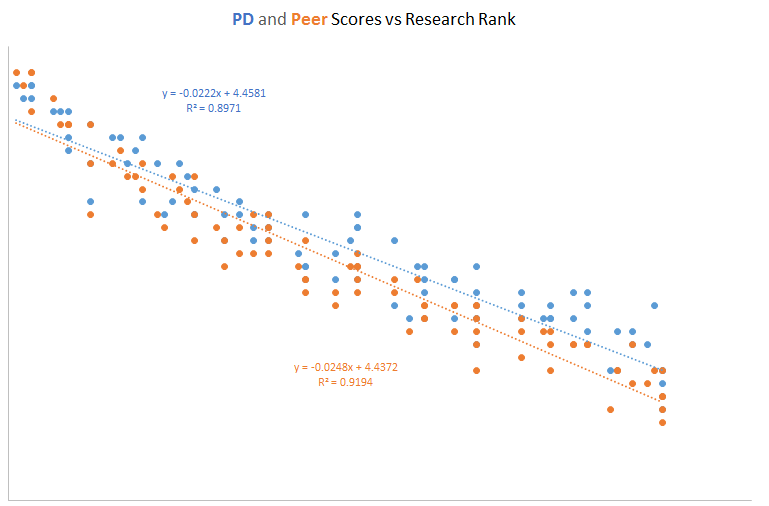- Joined
- May 30, 2015
- Messages
- 404
- Reaction score
- 83
So for this cycle I had applied very late (submitted secondaries in Nov-Jan), got 2 interviews at a mid-tier and a low-tier. Rejected at mid-tier and waitlisted at low-tier (i.e. 50+ rank based on US News rankings). Recently, though, I got an interview at one of the new "Unranked" med schools (based on US News research rankings).
I feel if I applied early, I would've had some chances at more-established mid-tier schools; I've decent stats: 3.75 GPA from top 30, 518 MCAT (132 physical/123 CARS/131 bio/132 behavioral), couple pubs with 1 first-author, couple national conferences, loads of clinical hours across different departments, EMT, tutoring, etc. (I'm fully aware that the CARS is low, but that's why I'm not aiming top tier.)
So my main question: if I ended up attending said unranked school, would it eliminate my chances at a top academic residency in a competitive specialty like orthopedics? The thing is when I look at residency match list of said school, the only top academic residency slots were in IM, EM, psych, and family med.
From looking at forums, top academic residencies (understandably) favor graduates from top med schools in general, but this is even more true for competitive specialties like orthopedics. Looking at the NREMP and current resident lists of top residencies further confirms this theory. Don't get me wrong, I fully understand there are several factors above med school rank that NREMP cites: Step scores, clinical grades, research, LORs, AOA membership, etc.
My "preliminary" goal in medicine would be to do ortho (I'm fully aware everyone starts off with that goal and very few end up making it; that's why I mention preliminary, I'd be flexible enough to change it depending on any new interests and/or med school performance). Let's say I work my butt off at the unranked med school to get the good Step scores, clinical/preclinical grades, ortho-related research publications (I already have 1 ortho-related first-author and have a good chance of another first-author by end of this year; also have poster at ORS), etc. Would I STILL be unable to match in a top 10 ortho residency? Note: this is obviously a hypothetical scenario, maybe even idealistic; I can definitely end up failing a class or two, do terrible on Steps, or maybe even get depressed or have a nervous breakdown or whatever. I'd just like to know of the possibility of matching in top 10 programs in this best-case scenario.
Thanks for the input! Sorry for long post
I feel if I applied early, I would've had some chances at more-established mid-tier schools; I've decent stats: 3.75 GPA from top 30, 518 MCAT (132 physical/123 CARS/131 bio/132 behavioral), couple pubs with 1 first-author, couple national conferences, loads of clinical hours across different departments, EMT, tutoring, etc. (I'm fully aware that the CARS is low, but that's why I'm not aiming top tier.)
So my main question: if I ended up attending said unranked school, would it eliminate my chances at a top academic residency in a competitive specialty like orthopedics? The thing is when I look at residency match list of said school, the only top academic residency slots were in IM, EM, psych, and family med.
From looking at forums, top academic residencies (understandably) favor graduates from top med schools in general, but this is even more true for competitive specialties like orthopedics. Looking at the NREMP and current resident lists of top residencies further confirms this theory. Don't get me wrong, I fully understand there are several factors above med school rank that NREMP cites: Step scores, clinical grades, research, LORs, AOA membership, etc.
My "preliminary" goal in medicine would be to do ortho (I'm fully aware everyone starts off with that goal and very few end up making it; that's why I mention preliminary, I'd be flexible enough to change it depending on any new interests and/or med school performance). Let's say I work my butt off at the unranked med school to get the good Step scores, clinical/preclinical grades, ortho-related research publications (I already have 1 ortho-related first-author and have a good chance of another first-author by end of this year; also have poster at ORS), etc. Would I STILL be unable to match in a top 10 ortho residency? Note: this is obviously a hypothetical scenario, maybe even idealistic; I can definitely end up failing a class or two, do terrible on Steps, or maybe even get depressed or have a nervous breakdown or whatever. I'd just like to know of the possibility of matching in top 10 programs in this best-case scenario.
Thanks for the input! Sorry for long post

